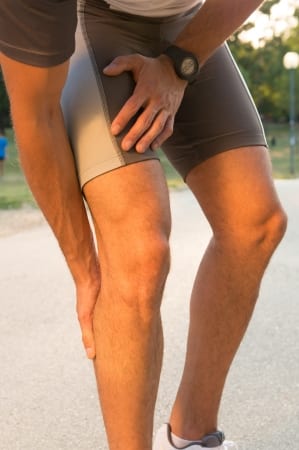
“What does not kill us makes us stronger” — a beautiful, motivating phrases make us think that the pain from training in our favour. But this is not always the case.
1. Your muscles shake strongly
“Slight tremor in the muscles does not mean anything bad,” says Matthews. But if my hands begin to tremble 7 points on the Richter scale or refuse to listen to you is a warning about their dysfunction. Not only do you risk dropping it on your foot heavy dumbbells or falling, but also set the stage for further injury. “When you are too exhausted physically, can’t keep proper posture during exercise, warns Matthews. — This can lead to strain and tear muscles.”
2. You feel sharp, acute pain
You can expect total, gradually increasing pain in the muscles — it indicates that the exercises push you to new performance. But severe pain that occurs suddenly and quickly indicate a problem. “Don’t try to force yourself through it, says a surgeon specializing in sports medicine Moira McCarthy. This can lead to injury of muscles or joints.”
3. After Jogging your knees or feet seem swollen
Redness, swelling, or continuing pain may indicate a problem of stress, for example, softening of the cartilage or the fractured tibia. “Give yourself a few days to rest and recover,” recommends McCarthy. It is worth to spend more time to warm up and stretch before you run. But if the pain appears on each run, you may want to consult a doctor. It will help you to find a weak place and to prevent injury.
4. After a workout, 3 days have passed and you still feel the pain
You gave it your best in the gym and still can’t without pain to climb the stairs? A certain degree of stiffness of the muscles is to be expected: the syndrome of delayed muscle soreness is a result of small tears in muscle tissue, and when the body begins to repair these tears, your muscles become stronger. However, manifestations of this syndrome must end in 24-48 hours. Otherwise, says Matthews: “this means that you have overloaded yourself too hard and too fast.” Give time to your muscles to recover before again heading to the gym. “If you continue to train with limited movement possibilities, it will carry the load on only one side of the body or wrong exercise, warns Matthews. — Over time, this can lead to serious injury”.
5. Your shoulder, knee or thigh pinching when lifting weights
Pain that occurs only at a certain movement, indicates that something goes not so, says McCarthy. If the pain is sharp, go to the check to the orthopedist. If the pain is tolerable, better ready yourself before training. “Be sure to do warm-up warm-up and stretching and don’t forget to drink water during a workout,” she says. Perhaps you should take a few steps backwards in terms of complexity of the exercises. “Don’t strive to be equal to others,” she adds. Reduce the weight of your dumbbells, slow down the speed of the exercises and carefully listen to their feelings.
Image credit: rido
